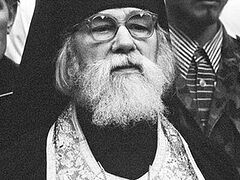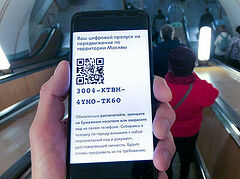Due to technological progress, the modern era has imperceptibly to us shifted the emphasis of religious fasts. Now modern descendants of ancient Christians can observe the food side of the fasting rules with little effort. But today a whole avalanche of new non-chemical addictions have appeared that are extremely hard to cope with. Let’s look together for ways to get a positive ascetic experience in the sphere of information technology. And let’s start with the recent secular holiday—the Day of Unplugging.
Digital detox
Christians who lived in the first centuries A.D. knew that man is a biological and social being, which means that asceticism is aimed primarily at pacifying the movements of the flesh and limiting social ties. In the early twenty-first century, our contemporaries suddenly realized that man is also an informational being. With the advent of the internet, a worldwide revolution has taken place in almost all areas of human activity. With the rapid development of digital technologies humanity really needed a break from the unrestrained flow of information that unceremoniously breaks into our lives. In the United States, this has resulted in a whole social movement promoting the voluntary refusal to go online. And a new term has appeared in English dictionaries—digital detox, digital detoxification.
As a result this popular initiative has grown into a memorable calendar date—the Day of Unplugging, which is celebrated annually on March 5. Providentially, the holiday falls precisely in Great Lent, and this year it fell on a Sunday, the day that every Orthodox Christian should dedicate to God. But a reasonable question arises: How can such a phenomenon be adopted by the Church? It’s elementary. In fact, abstinence from entertainment that relaxes the soul is “sewn” into the ascetic logic of Great Lent. It remains for us to develop this question theologically and accept it conciliarly at the Churchwide level. But it takes time. What can we do right now?
Information addicts
Once, in the harsh and hungry 1990s, my grandmother made “cutlets” by grinding soybeans in a meatgrinder. Fortunately, this our region’s crop. They would come out amazingly tasty and indistinguishable from the fishcakes she would make from pollock in times of prosperity. When I began to go to church, during the fasts I would recall how good they tasted and wished I could repeat my grandmother’s recipe. Today, the food industry has learned how to create imitations of delicacies that differ little in taste from the originals. For example, a Canadian company recently presented the production of artificial salmon, which, in terms of composition, taste and nutritional content is indistinguishable from real fish. In short, now you can keep fasts without straining yourself.
But is this the meaning of the famous stichera in which the Church calls on the faithful to keep a pleasant fast? The interpretation of these lines will surprise many: it is not about pleasing ourselves, but about how God accepts our fasting—that is, it is a call to fasting that is pleasing to God. But can fasting be pleasing to the Lord when we have replaced some goodies with others—for example, cow’s milk with soy, rice or oat milk? Obviously not, because one of the important objectives of fasting is to free a person from spiritual slavery to passions. What freedom can information addicts dream of if they eat fasting foods but cannot overcome internet addiction? It is just an illusion, and a very dangerous one.
A dopamine diet
In various interviews and documentaries, social media developers admit that their feeds are designed to hook users on the dopamine “needle” of diverse psychological reward traps. People become like Pavlov’s dogs, which salivated when a signal light flashed. No wonder that in the 2020s, among IT specialists in Silicon Valley a reaction was born to this phenomenon—the dopamine diet came into fashion. Its essence is precisely in refraining from the use of electronic devices. But adherents of dopamine fasting are not concerned with lofty matters at all—they just want to rebuild the reward system for the brain. It is pure pragmatism for increasing their work efficiency so as not to be distracted, bypassing their own traps. After all, drug dealers do not use the drugs they distribute.
Why don’t Orthodox Christians take on making the dopamine diet a religious practice? After all, Christianity did not shy away from adapting the terms of pagan philosophers for the development of its theology. In addition, the success of the spread of Christianity in Russia was largely due to the fact that the Church did not abolish the old Slavic traditions, but filled the former pagan forms with new, good content. Why not infuse Silicon Valley’s information abstinence methods with religious motivation? For example, I really want to check news on social media, but I will give it up for a while in order to focus on the inner spiritual life for the sake of Christ.
A radical way out
To sum up the advice of experts in the sphere of a digital detox, we should find hours and even days in our schedules for information relief. Teach yourself to turn off smartphones and tablets for a certain period or put them on airplane mode. True, at first you will have to be very patient, as such a fast will have setbacks at every step, because the struggle lies ahead of you of the FOMO (fear of missing out) syndrome, which immerses one in the illusion that he controls the situation. If the addiction is really bad, there is a radical way out—buy a push-button cellphone and spend whole days with it. If someone needs you badly, he will call you. Allocate a strict time limit for yourself to check your emails and messages.
Spend your free time wisely. For God: pray, study the sacred texts and patristic works, participate in church services and the sacraments, and visit holy places. For people around you: help, listen, empathize, walk, play and travel. For important meaning: read good books, watch good films, study necessary subjects, improve your competencies and implement your projects. And then from a frantic conveyor of annoying news and clips, the world will suddenly transform into a quiet library, from which you will take only what you need at the moment. We were not made for the world; the world is made for us. Only then will we begin to build proper relationships and find meaning inside and outside of us. Observe a pleasant fast!






